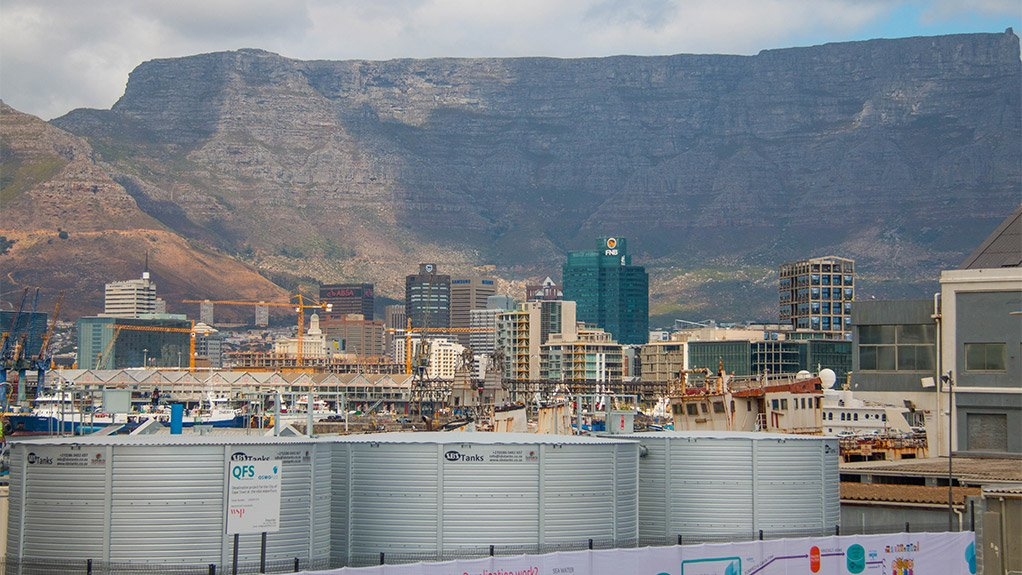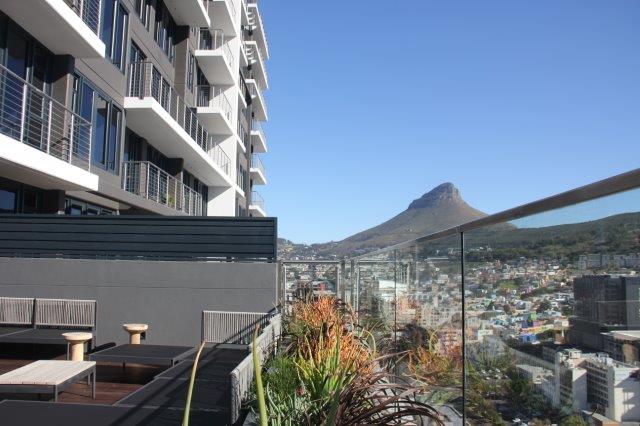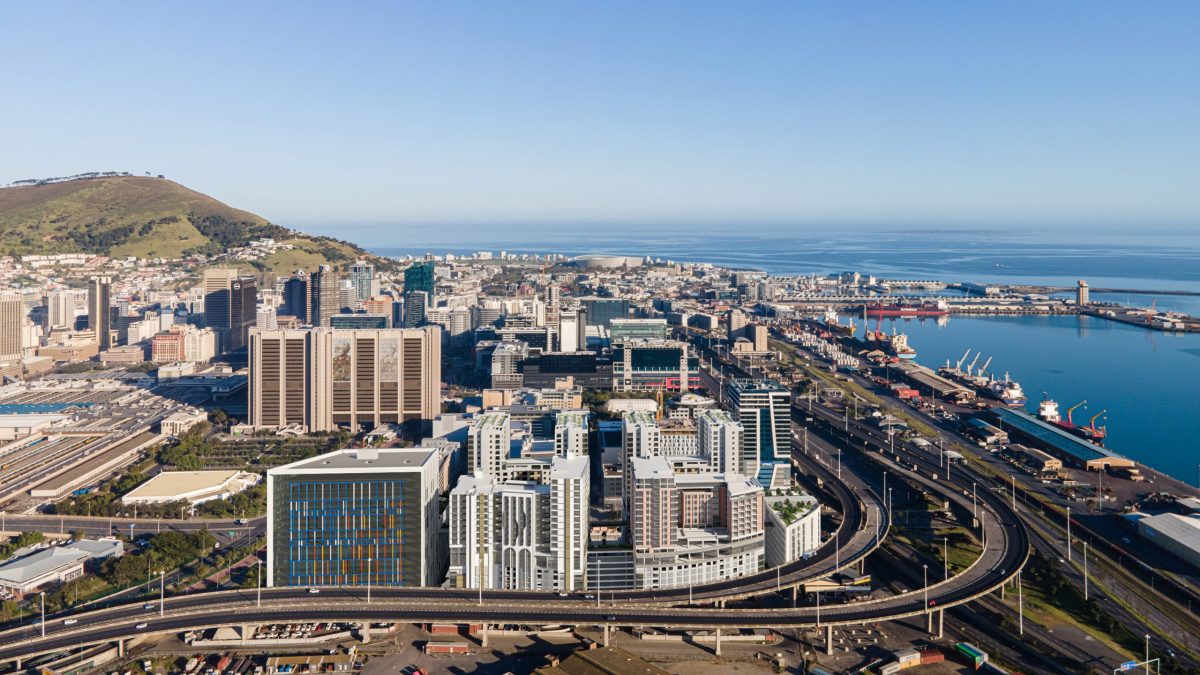

With the Cape Town area suffering from one of the worst droughts in its history, tank manufacturer and supplier SBS Tanks marketing manager James Preston says the City of Cape Townmunicipality has launched several alternative water source projects to mitigate the drought’s effects.
SBS Tanks has recently contributed to one such project. The project saw SBS Tanks partnering with filtration and water treatment equipment supplier Quality Filtration Systems, as well as water treatment systems, services and solutionsprovider Osmoflo, to provide a mass water storage solutionfor the area in a short period.
The group partnered on the construction and installation of a new emergency desalination plant at the V&A Waterfront. The new desalination plant will have the capacity to provide two-million litres of freshwater a day for local residents.
The desalination plant projectaims at establishing a fully containerised two-minimum-liquid-discharge plant capable of seawater reverse osmosis and multimedia filtration. The plant will desalinate seawater into fresh drinking water and store it in large quantities, making it available to Cape Townresidents on demand.
He describes the lead time for the tank installations as “particularly remarkable”. A tank installation for a desalination plant can take many years to build and develop, but the new Cape Town plant’s tank system has been put together within two months.
SBS Tanks also recently provided four module ST 31/09 tanks for the City of Cape Town as part of the water crisis management projects in the area. Preston says the company is proud to be a part of projects aimed at helping mitigate the current water crisis.
Domestic household demand for tanking solutions in Cape Town has “skyrocketed in recent months”, he says. “So many people want to store water off-grid. They can’t rely on municipal demand because there just is no water in the dams.”
He says the tank industry would have been better able to assist in preventing a water crisis if the city council had issued timeous warnings. The rain water harvested by businesses, warehouses, retail properties, commercial properties and homes could have been stored in tanks, which would have acted as catchment areas, he explains.





